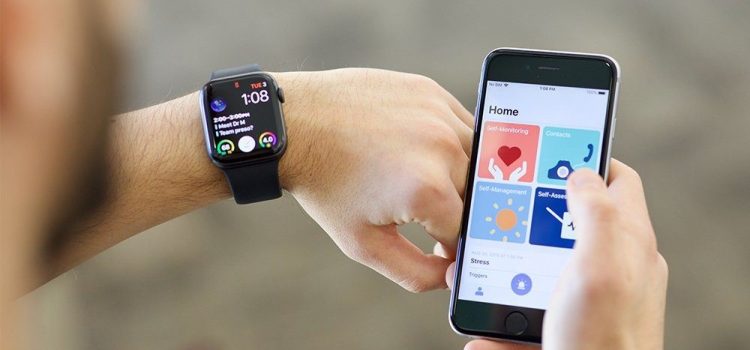
In recent years, the landscape of healthcare has been revolutionized by technological advancements, particularly in the field of health monitoring devices. These innovations have been a game-changer for heart patients, offering them the ability to monitor their health in real-time and make informed decisions about their well-being. As we step into 2024, the market for health monitoring devices continues to expand, providing heart patients with more sophisticated tools than ever before. This article explores some of the top health monitoring devices for heart patients in 2024, highlighting their features and benefits.
1. Smartwatches with ECG Functionality
Smartwatches have become an integral part of the health monitoring ecosystem, and their capabilities have only grown more sophisticated. In 2024, smartwatches with Electrocardiogram (ECG) functionality are at the forefront of heart health monitoring. These devices allow heart patients to record their heart’s electrical activity, providing a comprehensive overview of their cardiac health. The ability to detect irregular heart rhythms, such as atrial fibrillation, enables early intervention and potentially life-saving measures.
Brands like Apple, Samsung, and Fitbit have led the charge in integrating ECG capabilities into their smartwatches. These devices not only offer heart rate monitoring but also provide insights into sleep patterns, physical activity levels, and stress management, making them a holistic health monitoring solution for heart patients.
2. Portable EKG Monitors
For heart patients who require more detailed cardiac monitoring, portable EKG monitors are an excellent choice. These devices are compact, easy to use, and provide medical-grade ECG readings. Portable EKG monitors are particularly beneficial for patients who need to keep track of their heart health on the go or during travel.
Devices like the KardiaMobile by AliveCor have gained popularity due to their accuracy and user-friendly design. By simply placing their fingers on the device, heart patients can capture a detailed EKG and share it with their healthcare provider for further analysis. This real-time data transmission ensures that any potential issues are identified and addressed promptly.
3. Wearable Blood Pressure Monitors
High blood pressure is a significant risk factor for heart disease, making its monitoring crucial for heart patients. In 2024, wearable blood pressure monitors have become more advanced, offering continuous blood pressure monitoring without the need for a traditional cuff. These devices are typically worn on the wrist or upper arm and use optical sensors to measure blood pressure.
Wearable blood pressure monitors provide heart patients with the convenience of tracking their blood pressure throughout the day, offering insights into how it fluctuates with different activities and stress levels. This continuous data can help patients and their healthcare providers make informed decisions about lifestyle changes or medication adjustments.

4. Implantable Loop Recorders
For heart patients with a history of unexplained fainting or palpitations, implantable loop recorders offer a long-term monitoring solution. These small devices are implanted under the skin and continuously monitor the heart’s electrical activity. They can detect irregularities such as arrhythmias, providing valuable data to healthcare providers.
Implantable loop recorders are particularly beneficial for patients who experience infrequent symptoms that are difficult to capture with standard EKGs or Holter monitors. The data collected by these devices can be transmitted to healthcare providers remotely, allowing for timely intervention if necessary.
5. Smart Clothing with Heart Monitoring Capabilities
Innovations in smart textiles have led to the development of clothing with integrated heart monitoring capabilities. These garments are designed with sensors that can detect heart rate, respiration, and other vital signs. For heart patients, smart clothing offers a non-intrusive way to monitor their health throughout the day.
Smart clothing is particularly useful for patients who engage in physical activity, as it provides real-time feedback on their cardiovascular performance. This information can be used to optimize exercise routines and ensure that heart patients are exercising safely and effectively.
6. Remote Patient Monitoring Systems
Remote patient monitoring systems have become increasingly important in managing chronic conditions like heart disease. These systems typically include a combination of devices that monitor various health metrics, such as heart rate, blood pressure, and weight. The data collected is transmitted to healthcare providers, allowing for continuous monitoring and timely interventions.
In 2024, remote patient monitoring systems have become more integrated, offering heart patients a comprehensive view of their health. These systems often include mobile apps that provide patients with insights into their health trends and allow them to communicate with their healthcare providers. This level of connectivity enhances patient engagement and empowers them to take an active role in managing their heart health.
7. AI-Powered Health Monitoring Devices
Artificial Intelligence (AI) has made significant inroads into the field of health monitoring, offering heart patients devices that can analyze data and provide predictive insights. AI-powered health monitoring devices use machine learning algorithms to detect patterns and anomalies in heart health data, offering early warnings of potential issues.
These devices can also provide personalized health recommendations based on the data collected, helping heart patients make informed decisions about their lifestyle and treatment plans. The integration of AI into health monitoring devices represents a significant advancement in personalized medicine, offering heart patients tailored solutions to manage their condition effectively.
Conclusion
As we navigate through 2024, the advancements in health monitoring devices continue to transform the way heart patients manage their health. From smartwatches with ECG functionality to AI-powered devices, the options available are more diverse and sophisticated than ever before. These devices empower heart patients to take control of their health, providing them with the tools they need to monitor their condition in real-time and make informed decisions.
The integration of technology into healthcare has not only improved the quality of life for heart patients but has also paved the way for more personalized and proactive healthcare solutions. As technology continues to evolve, the future of heart health monitoring looks promising, offering heart patients even more innovative tools to support their journey towards better health.










